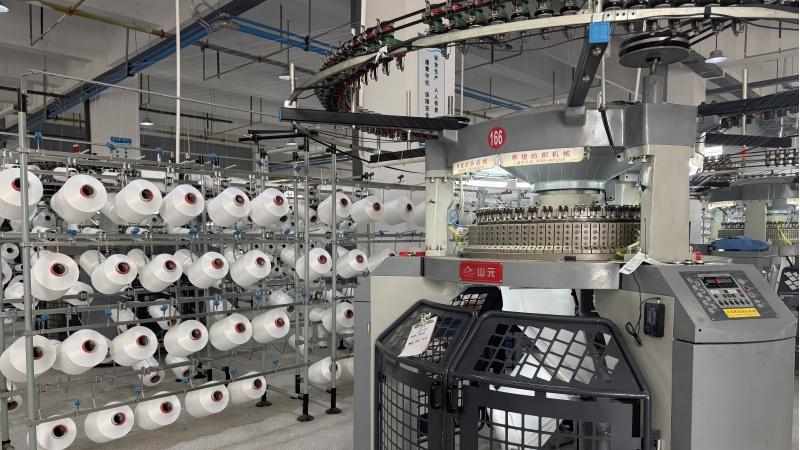The signals from the presence of over 100 Chinese automakers in Munich: Global Times editorial
On September 9 local time, the IAA Mobility (Munich Motor Show), the world's premier biennial auto show, officially opened to the public. The Chinese presence at the show continued to attract significant attention. According to data from the German Association of the Automotive Industry, China has the largest number of exhibitors from outside of Germany, with 116 companies. BYD, Xpeng, and Leapmotor showcased their full global offerings, encompassing everything from complete vehicles to batteries, autonomous driving, LiDAR, and smart cockpits. Amid the global geopolitical turmoil and rising trade protectionism, the presence of Chinese automakers in Munich is significant.
Next month marks the second anniversary of the EU's official launch of an "anti-subsidy investigation" into imported pure electric vehicles from China, as well as the first anniversary of the implementation of EU "anti-subsidy duties" on China. Practice has proven that protectionism cannot stop the power of market selection. Over the past two years, Chinese automakers have not only seen a growing presence and visibility in Europe, but have also been thoroughly tested by the market.
According to data from a well-known European organization, Chinese brands accounted for 9.9 percent of electric vehicle sales in Europe in July, bringing their market share to 5.3 percent of the entire European auto market, surpassing the 5 percent mark for three consecutive months. This fully demonstrates the resilience and potential of Chinese auto brands in their continued growth against the odds. The significant increase in the number of Chinese automakers participating at the Munich Motor Show demonstrates that the booming development of China's new-energy vehicles is based on the superior cost-effectiveness resulting from leading technology and a well-developed industry chain, coupled with good consumer experience and robust market demand. This is the underlying logic driving the industry's growth.
Furthermore, the entry of Chinese EVs is playing a "catfish effect," activating innovation vitality in Europe's traditional auto market and accelerating the industry's shift toward electrification and intelligence. We are seeing a profound transformation in the mindset of the industrial community, including Europe's auto sector. European automakers actively embrace change and seek cooperation with their Chinese counterparts. Executives of Volkswagen, Renault, BMW and others have openly said that, in the face of competitive pressure from Chinese companies, what European carmakers need to do is to rise to the challenge, play catch-up, and draw on the strengths of their Chinese peers. At the Munich Motor Show, the unveiling of new-energy strategies and concept cars by giants such as BMW, Mercedes-Benz, and Audi demonstrated this shift. They are no longer merely "defenders," but active participants and agents of change.
More and more signs show that the desire for win-win cooperation between Chinese and European industries is surpassing the outdated mindset of economic "over-politicization." China has built strong expertise in battery technology, intelligent systems, and renewable energy integration, while Europe has rich experience in vehicle design, brand heritage, and certain high-end manufacturing.
In fact, the willingness and concrete actions of Chinese and European industries and enterprises to cooperate have far outpaced the lagging and ideologically biased policies of the EU. From Volkswagen's investment in Xpeng, to Mercedes-Benz's deepened technical cooperation with Geely, to BYD planning to invest in factories across multiple European countries in an effort to "be more European in production," all these moves highlight the inherent need and resilience of deep integration in the two sides' industrial and supply chains.
Only products and companies that withstand market tests can meet consumer preferences and keep pace with industry trends. By contrast, industries sheltered by trade protectionism and self-isolation often fall into decay, lacking endogenous momentum for growth. China's massive new-energy passenger vehicle market - 5.524 million units sold in just six months - and breakthroughs such as "a 10-minute charge for a 400-kilometer range" are direct results of fierce market competition unlocking business potential.
Chinese automakers' recent progress and global influence are a vivid reflection of the comprehensive upgrading of China's new quality productive forces. In recent years, both Chinese consumers and foreign friends have seen firsthand that China's EVs have become "ubiquitous," "better to drive," and are "making greater contributions."
By the end of 2024, China's NEV market consumption exceeded 2 trillion yuan, powerfully driving rapid growth along the industrial chain and related sectors, producing a systematic boost to the macroeconomy. This massive market advantage and deeply integrated industrial layout will likewise serve as a "tailwind" for global green transition, including in Europe.
Healthy competition is the only way to keep generating fresh momentum, and openness and cooperation are the right answers to global challenges. The Munich Motor Show was not only a feast of cars, but also a dialogue on cooperation, win-win outcomes, and mutual achievement. Disorderly confrontation will only harm growth and transition on both sides, while rational cooperation delivers tangible benefits for both sides. Europe must avoid letting "de-risking" slide into "de-opportunity." Responding to pressure with isolation will only sap competitiveness through internal friction. In the complex process of globalization, achieving success together, rather than opposing each other, is the correct path for China-Europe relations, and indeed the only way forward for human progress.
Photos
Related Stories
- Festival of Motoring 2025: A showcase of Chinese automotive innovation in South Africa
- China's commercial vehicle sector sees steady growth in July
- China's auto industry reports steady growth in July
- Feature: Chinese auto innovation powers Egypt's assembly lines
- German carmakers hit by U.S. tariffs, eye closer China-EU cooperation
Copyright © 2025 People's Daily Online. All Rights Reserved.









